- Home
- School Life
- News
- Climate Scientist from Imperial College Visits
Climate Scientist from Imperial College Visits
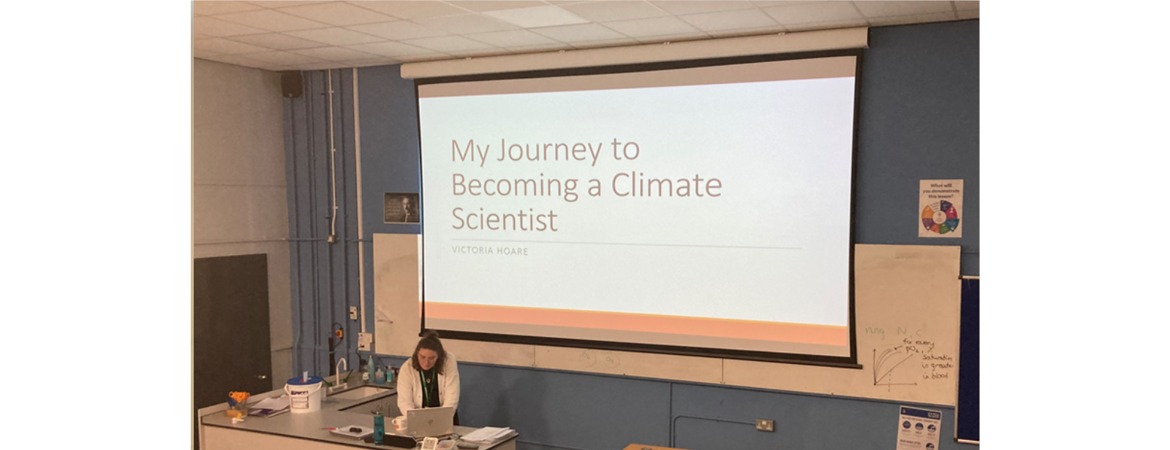
We were delighted to welcome Victoria Hoare to Charters this week to explain her work as a Climate Scientist to Year 12 Biology students.
Victoria, who is currently in the final year of her PhD studies examining Climate Science and Policy, began her talk by explaining her academic pathway. After taking Biology, Chemistry and Economics at A Level she realised that wildlife and nature conservation were subjects that interested her, and therefore choose a 4 year undergraduate course at Exeter University in Conservation Biology and Ecology which included one year in Canada.Trying to solve the conflict between human beings and wildlife was something that Victoria enjoyed and she continued her studies with a Master's degree at Swansea University where she studied Environmental Biology, Conservation and Resource Management. Now at Imperial College, London, Victoria's research looks at the effectiveness of climate calculators and land management.
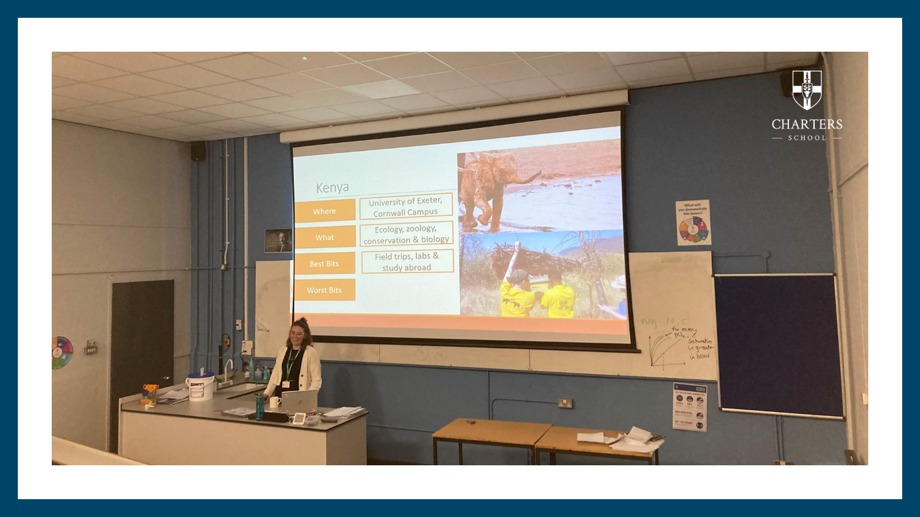
Victoria told the students that she really enjoys researching areas that she finds interesting and setting her own working pattern, and that working on a PhD is very different to studying for an undergraduate degree.
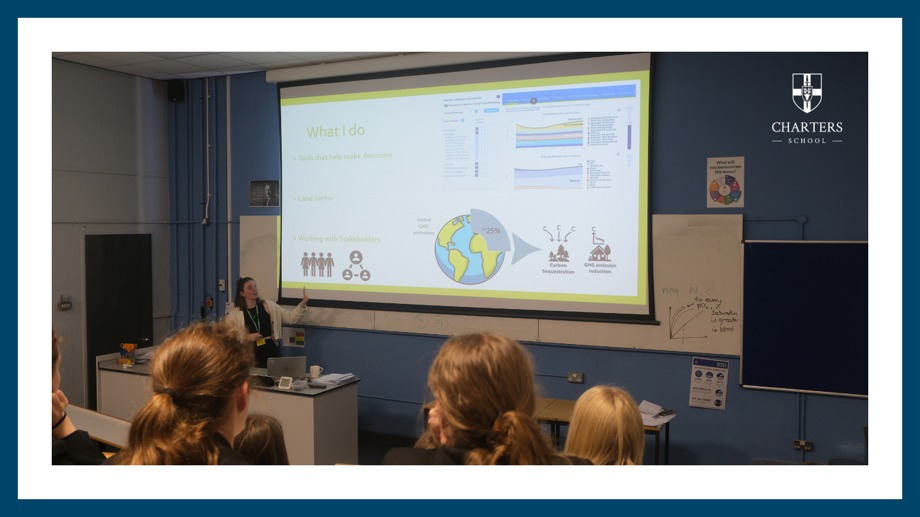
The students were able to ask questions at the end of Victoria's talk and she reassured them that it was OK not to know exactly what they wanted to do as a career but stressed to the students that it should be something they are enthusiastic about and will enjoy. After having studied for nearly nine years, she is still undecided as to which path to take after she completes her studies in November but is considering consultancy, working for an NGO or government department.
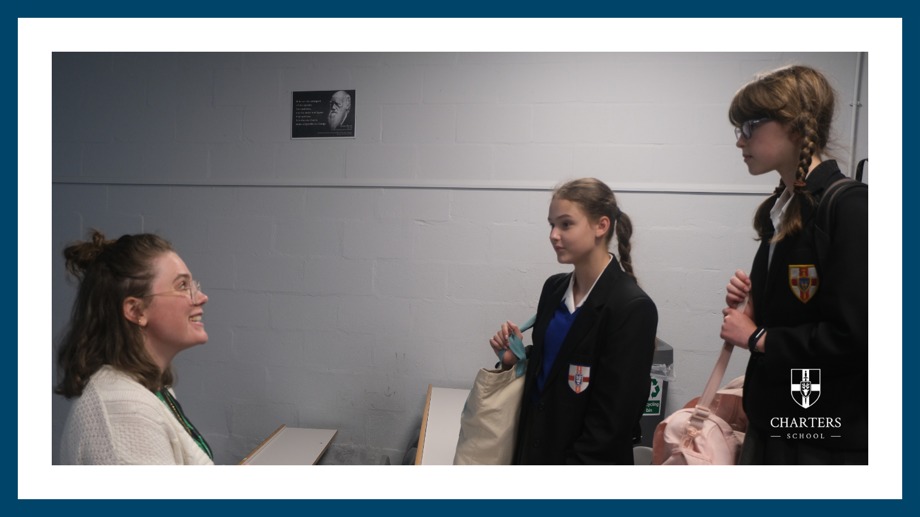
During second break, our youngest students were able to hear from Victoria, and she explained the impact of climate change and how human beings are part of the problem, (anthropogenic climate change). She explained that there were many ways in which the world's population could improve the environment; she gave the example of how bee fences in Kenya are reducing the instances of crops being destroyed by elephants as if they try to enter a field they invariably get bees flying up their trunks! This ultimately saves the elephants from being shot by irate farmers who are trying to protect their livelihoods.
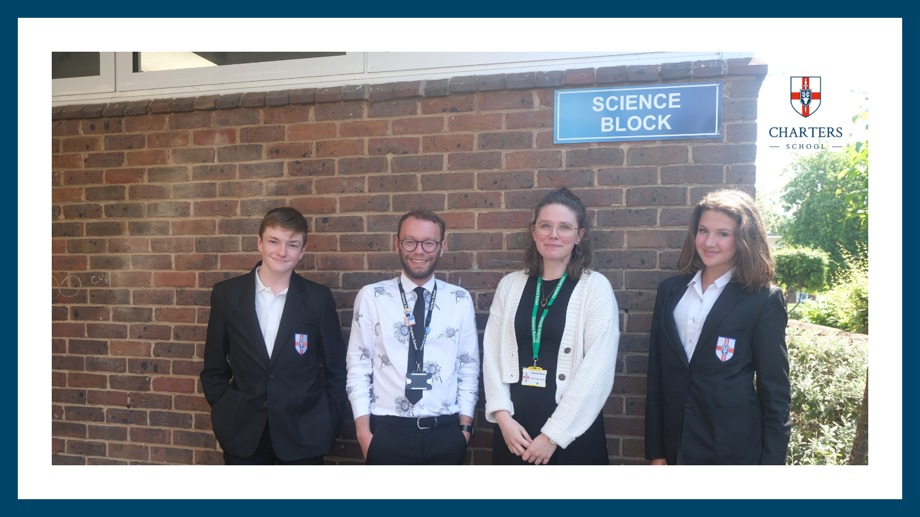
Victoria finished her talk by telling the students that they were in a unique and powerful position; she encouraged those that are interested in helping to reduce climate change to shout about the issue so that people around them listen, and that if we all do something small like turn off a light or an appliance at the switch, it can have a profound effect.
We would like to thank Victoria for her wonderfully engaging presentations and her insight into the work of a Climate Scientist.

